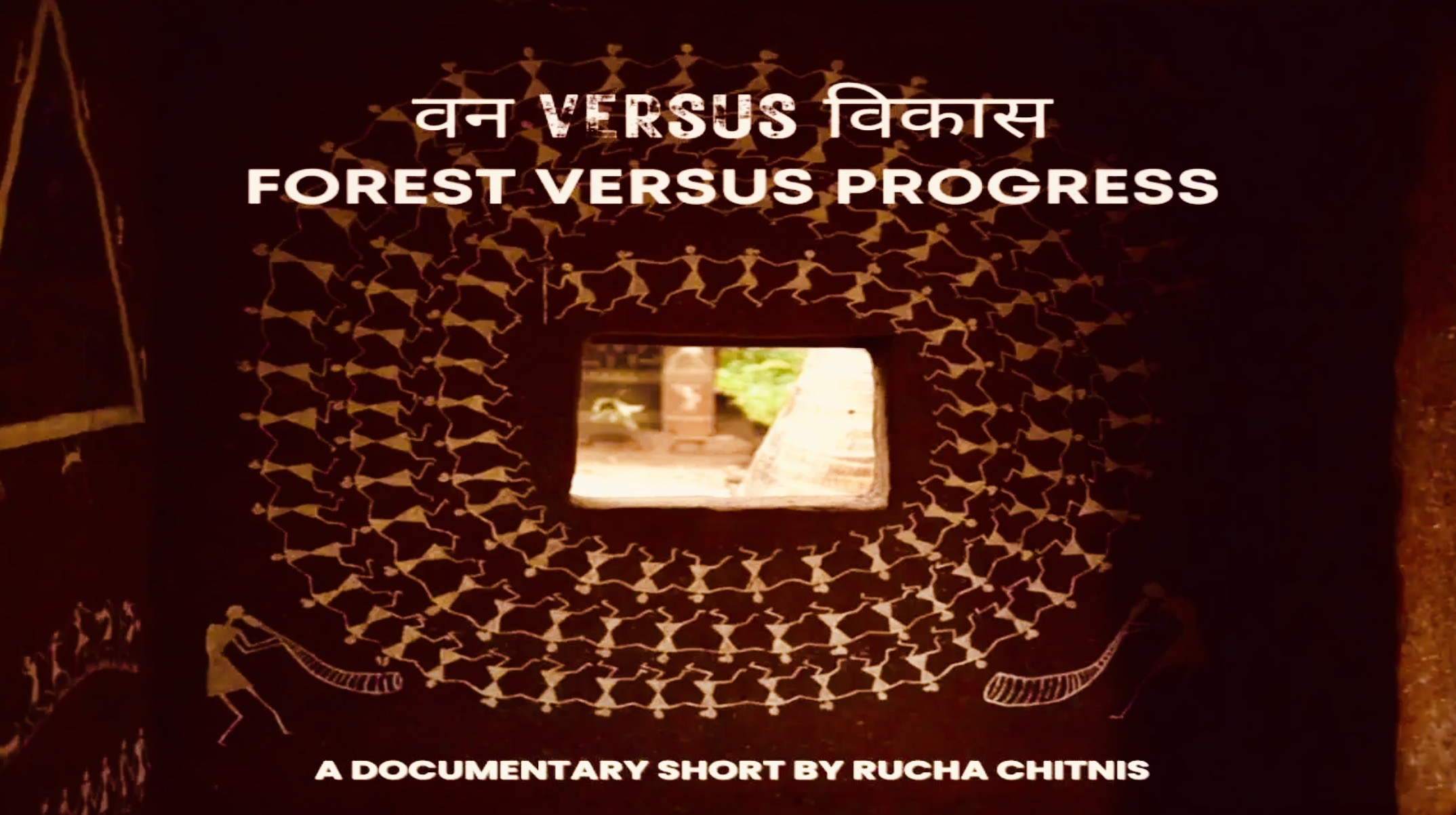Van Versus Vikas: New documentary dismantles mythology of India's “progress” from worldview of Adivasi family

The film chronicles the resistance of an Adivasi family, along with other city activists and residents, to stop the Mumbai Metro Rail project in the forest, which is destroying trees.
TCN Correspondent
MUMBAI (MAHARASHTRA) — A new documentary Van Versus Vikas (Forest Versus Progress) by independent filmmaker and writer Rucha Chitnis interrogates the truth of India's claim of "progress," which has left millions of Adivasi (tribal) communities behind and created an ecological crisis.
The film had its opening launch at the Press Club Mumbai on January 19.
Directed and produced by Rucha Chitnis, this place-based documentary short centres on two protagonists: Mumbai's beloved and beleaguered Aarey Forest and the Bhoir family, whose Adivasi ancestors have lived in the jungle for generations.
“Indigenous Peoples of India shudder to hear the word progress,” says Prakash Bhoir, an Adivasi artist and activist living in Keltipada in Aarey.
“Adivasi communities have experienced unimaginable suffering in the name of progress. We raise our voices to fight for our rights, as well as for the rights of the animals and trees in Aarey jungle, who are also harmed by this development model.”
The Bhoir family includes Prakash Bhoir and Pramila Tai and their three children—Shyam, Akash and Shital— who are all Warli painters. Their art often mirrors the injustices that Aarey's Adivasi families and surrounding ecosystems face from development projects.
The film chronicles the resistance of the Bhoir family, along with other city activists and residents, to stop the Mumbai Metro Rail project in the forest, which is destroying trees. The Bhoirs worship nature and Waghoba, which represents the tiger and leopard spirit.
The film gives a glimpse into the life of the Bhoir family in the forest, their deep, intergenerational love for Aarey's ecosystems and hopes and dreams for genuine "Vikas (progress)" from the Adivasi worldview. Together, they debunk the mythologies of progress in modern India, which has left communities and ecosystems at peril.
“The Bhoir family are reimagining progress—one that upholds human rights and rights of nature; progress that is not predicated on human rights abuses, displacing countless Indigenous Peoples, their culture and lifeways. Those of us who benefit from the dominant culture need to reflect on the normalisation of harm that profits few and harms many,” said Rucha Chitnis, producer of Van Versus Vikas.
The film chronicles the roller coaster ride of Adivasis and other Mumbai residents as they build a grassroots movement to stop the metro car shed project; the Save Aarey movement scores a victory in 2022 when the Shiv Sena government declared Aarey as a forest.
However, a political crisis in Maharashtra in 2022 led to a gut-wrenching heartbreak when the new Shinde-Fadnavis government decided to relocate the metro car shed to Aarey. The protests continued but the right-wing Shinde-Fadnavis government is not swayed by the public outcry and demands to protect Mumbai's lungs.
“A fish cannot live without water. We cannot live without this forest. We have a deep love for this forest,” says Prakash. “The greed of man will never cease. But we must remember that we are guests on Earth. We are not the owners of the Earth.”
Prakash's son Shyam predicts that the destruction of the rights of Indigenous Peoples will lead to a destructive nature and ultimately humankind. “Wherever are the Indigenous Peoples, so are the forests they have protected. Because Adivasis worship nature, therefore nature is our God. The destruction of Indigenous Peoples will lead to the destruction of nature, and the destruction of nature will lead to the destruction of Mother Earth,” he said.
